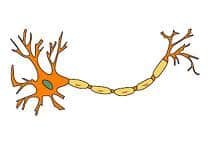Before entering fully into the meaning of the term denervation, we are going to proceed to discover its etymological origin. In this case, we can point out that it is a word that derives from Latin, it is exactly the result of the union of these Latin components:
-The prefix “des-”, which is used to indicate “denial”.
-The particle “en”, which means “inwards”.
-The little noun “nervium”, which is synonymous with “nerve”.
-The suffix “-cion”, which is used to indicate “action and effect”.
The act that the nervous system develops on the functions of the organs is called innervation . When a nerve supplies some part of the body, it reaches it. The idea of denervation refers to the loss of innervation in a certain structure of the organism.
 Denervation, therefore, may imply that a muscle loses innervation due to injury or other disorder. If a nerve pathway is cut or if its transmission of impulses is interrupted by a drug, denervation occurs.
Denervation, therefore, may imply that a muscle loses innervation due to injury or other disorder. If a nerve pathway is cut or if its transmission of impulses is interrupted by a drug, denervation occurs.
One of the consequences of muscle denervation is atrophy . When the muscle is no longer innervated, it does not receive the signals it needs to maintain its normal size. Thus, muscle atrophy begins to develop, which implies a decrease in its mass.
If denervation is suspended and innervation is restored, the muscle can recover its functions . On the other hand, if denervation is maintained over time , a few months later the muscle fibers begin to degenerate. Therefore, a denervation sustained over time may become irreversible because the muscle, at a certain point, is no longer able to recover normal function.
Sometimes denervation is produced on purpose to relieve pain . In this framework, we can talk about radiofrequency denervation , which seeks to deactivate the nerve that causes the condition.
A clear example of how denervation can be used intentionally to deal with a chronic condition is in the case of chronic low back pain. Specifically, it is considered that radiofrequency can achieve pain relief. Of course, it must be taken into account that it is a solution for which there is still no medical evidence that it will significantly improve the situation.
Radiofrequency denervation has another series of interesting aspects that are worth knowing, such as:
-It is also called rhizotomy or rhizolysis.
-It is recommended, above all, by the units that are in charge of pain treatment.
-It is mainly used for ailments that affect the lower back or neck. We are referring, for example, to back pain and neck pain, among others.
Although denervation procedures are often used to treat chronic low back pain, it is important to note that their safety and effectiveness are often questioned by some doctors.
